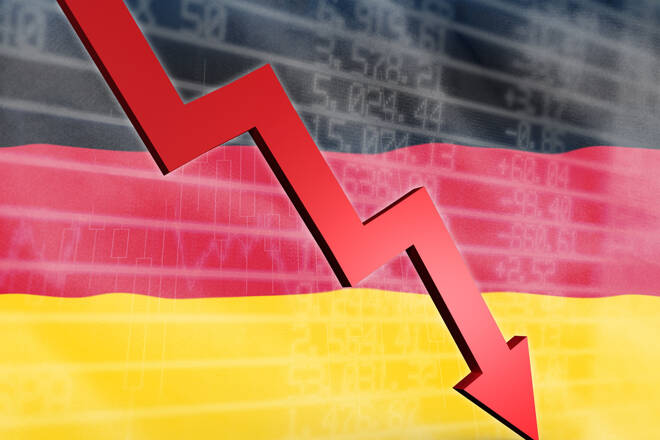Advertisement
Advertisement
European Equities: A Week in Review – 25/02/22
By:
The DAX led the way down, as the markets responded to Russia's invasion of Ukraine. Hopes of a FED pause on policy provided some support late in the week.
The Majors
It was a particularly bearish week for the European majors in the week ending 25th February. The DAX tumbled by 5.56%, with the CAC40 and the EuroStoxx600 ending the week down by 3.70% and by 3.42%, respectively.
Economic data took a back seat for a 2nd consecutive week, with news updates on Russia and Ukraine dictating market direction. In the 2nd half of the week, Russia invaded Ukraine, sinking the European majors.
There were market bets of the FED hitting pause on its likely March move, however, which delivered support on Friday. The DAX had been down by close to 10% before finding Friday support.
The Stats
Early in the week, private sector PMI numbers for France, Germany, and the Eurozone were in focus. The numbers were positive, with the Eurozone’s composite PMI rising from 52.3 to 55.8.
Mid-week, German business, and consumer sentiment figures delivered mixed results ahead of upward revisions to GDP numbers for Q4. Germany’s IFO Business Climate Index rose from 96.0 to 98.9, while the GfK Consumer Climate Indicator fell from -6.7 to -8.1.
In the 4th quarter, the German economy contracted by 0.3%, up from a 1st estimate 0.7% contraction.
Other stats included inflation figures that took a back seat as the markets responded to news updates on the Russian invasion of Ukraine.
From the U.S
Private sector PMI and consumer confidence figures drew attention early in the week. While consumer confidence weakened in February, private sector activity picked up. According to prelim figures, the all-important services PMI rose from 51.2 to 56.7.
In the 2nd half of the week, Q4 GDP, jobless claims, inflation, personal spending, and core durable goods were in focus.
Jobless claims and GDP figures were market positive. Friday stats were mixed, however.
Core durable goods rose by 0.7% with personal spending jumping by 2.1% in January. Inflationary pressures ticked up, with the Core PCE Price Index up 5.2% year-on-year, in January. This was up from 4.9% in December.
The Market Movers
From the DAX, it was a bearish week for the auto sector. Continental tumbled by 11.37%, with BMW sliding by 7.46%. Volkswagen and Daimler ended the week down by 1.76% and by 3.20%, respectively.
It was also a bearish week for the banking sector. Deutsche Bank slumped by 17.14%, with Commerzbank sliding by 7.72%.
From the CAC, it was a particularly bearish week for the banks. Soc Gen tumbled by 20.91%, with BNP Paribas and Credit Agricole ending the week with losses of 12.56% and 14.22%, respectively.
The French auto sector had a bearish week. Stellantis NV rose by 0.68%, while Renault slid by 15.00%.
Air France-KLM ended the week down by 7.75%, with Airbus falling by 2.18%.
On the VIX Index
It was back into the red for the VIX in the week ending 25th February, marking the 3rd rise in 7 weeks.
Partially reversing a 1.43% rise from the previous week, the VIX slipped by 0.58% to end the week at 27.59.
2-days in the red from 4 sessions, which included a 9.00% slide on Friday delivered the downside.
For the week, the NASDAQ slipped by 0.70%. The Dow and the S&P500 fell by 1.96% and 2.65%, respectively.
The Week Ahead
It’s another busy week ahead on the Eurozone economic calendar. Private sector PMIs for Italy and Spain and finalized PMIs for France, Germany, and the Eurozone will be in focus. Expect any revisions to the Eurozone’s PMIs to be key.
German retail sales, unemployment, and trade data will also draw interest in the week.
From the U.S, ISM Manufacturing and Non-Manufacturing PMIs, ADP nonfarm payrolls, jobless claims, and nonfarm payrolls will also influence. There are also private sector PMIs from China to consider.
While the stats will provide direction, geopolitics will remain a key driver. Progress towards an end to the Russian invasion of Ukraine would support the European majors.
About the Author
Bob Masonauthor
With over 28 years of experience in the financial industry, Bob has worked with various global rating agencies and multinational banks. Currently he is covering currencies, commodities, alternative asset classes and global equities, focusing mostly on European and Asian markets.
Advertisement
